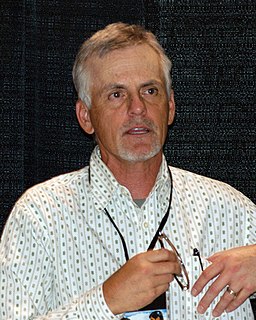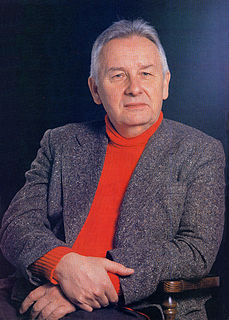A Quote by Christian Bale
It's the actors who are prepared to make fools of themselves who are usually the ones who come to mean something to the audience.
Related Quotes
The thing I was up against in documentary films - was trying to get non-actors to convincingly play themselves in a way I'd come to know before the camera started rolling. And many non-actors can't do that convincingly, even if they just have to play themselves - they can't be naturalistic. And I would always want to recreate something I'd witnessed them do or say, and it just would be incredibly difficult because of the fact they weren't actors.
Learn as much as you can about performing. Live theater, improv classes, music, stand up comedy, dance, anything to make yourself confident and comfortable in front of an audience. It'll all come in handy when auditioning for producers and performing with other actors. The best voice actors all have a live performance background. And are competent, fearless, incredibly creative actors.
Even in the things that look most frivolous there has to be the threat of something quite painful to make the comedy work. I suppose the play of mine that's best know is NOISES OFF, which everyone thinks is a simple farce about actors making fools of themselves. But I think it makes people laugh because everyone is terrified inside themselves of having some kind of breakdown, of being unable to go on. When people laugh at that play, they're laughing at a surrogate version of the disaster which might occur to them.
If the audience gets everything, if they see the photography and notice that it is good, then the story goes out the window, but if you become involved with the lives of the actors and forget that you are seeing mechanical devices on a huge screen - forget the make-believe - this is the job of the director to involve the audience with the actors.
I do not choose my listeners. What I mean is, I never write for my listeners. I think about my audience, but I am not writing for them. I have something to tell them, but the audience must also put a certain effort into it. But I never wrote for an audience and never will write for one, because you have to give the listener something and he has to make an effort in order to understand certain things.
A lot of the times the first take was the best, because the actors are not analyzing themselves as much; they just do it. I believe in happy accidents and I'm not necessarily into actors getting the dialogue exactly as I wrote it; I'm much more into them understanding the motivations and have it come out in a natural way, and maybe catch something that I didn't expect.



































